ICT
Vision
Responsible, Innovative and Competent users of ICT
Signature Programmes
Baseline ICT Standards and New Media Literacies
Our ICT programmes are aligned to MOE’s direction of Student-Centric and
Values-Driven education and our school’s vision of Concerned Citizens,
Innovative Thinkers, Passionate Learners. ICT is integrated in the curriculum
across all subjects and students use ICT tools for collaborative and self-directed
learning.
The Baseline ICT Standards and New Media Literacies (NML) is a set of ICT and literacy skills that our students will learn over their 6 years in Cantonment Primary School. The Baseline ICT Standards define the basic level of knowledge, skills and values that our students need in order to fully benefit from a curriculum enriched with ICT, and eventually thrive in a technology-driven society while the New Media Literacies (NML) define the skills, knowledge, attitudes and values that students should apply and demonstrate when harnessing technologies for learning.
NML are woven into all lessons at different levels progessively. Our Primary 1 to Primary 6 students are taught how to Curate, Create and Connect. For example, our Primary 1 students will learn touch typing skills. Moving on, they will also learn basic digital navigation skills and apply these skills to locate, collect and sort information (Curate). At the Primary 2, our students learn a higher level of touch typing skills and create a short document using Microsoft Word (Create).
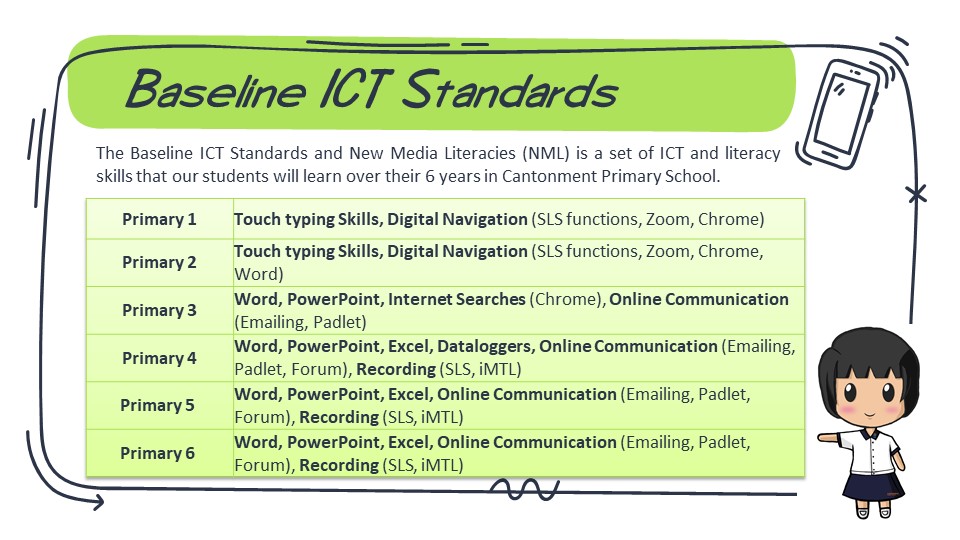
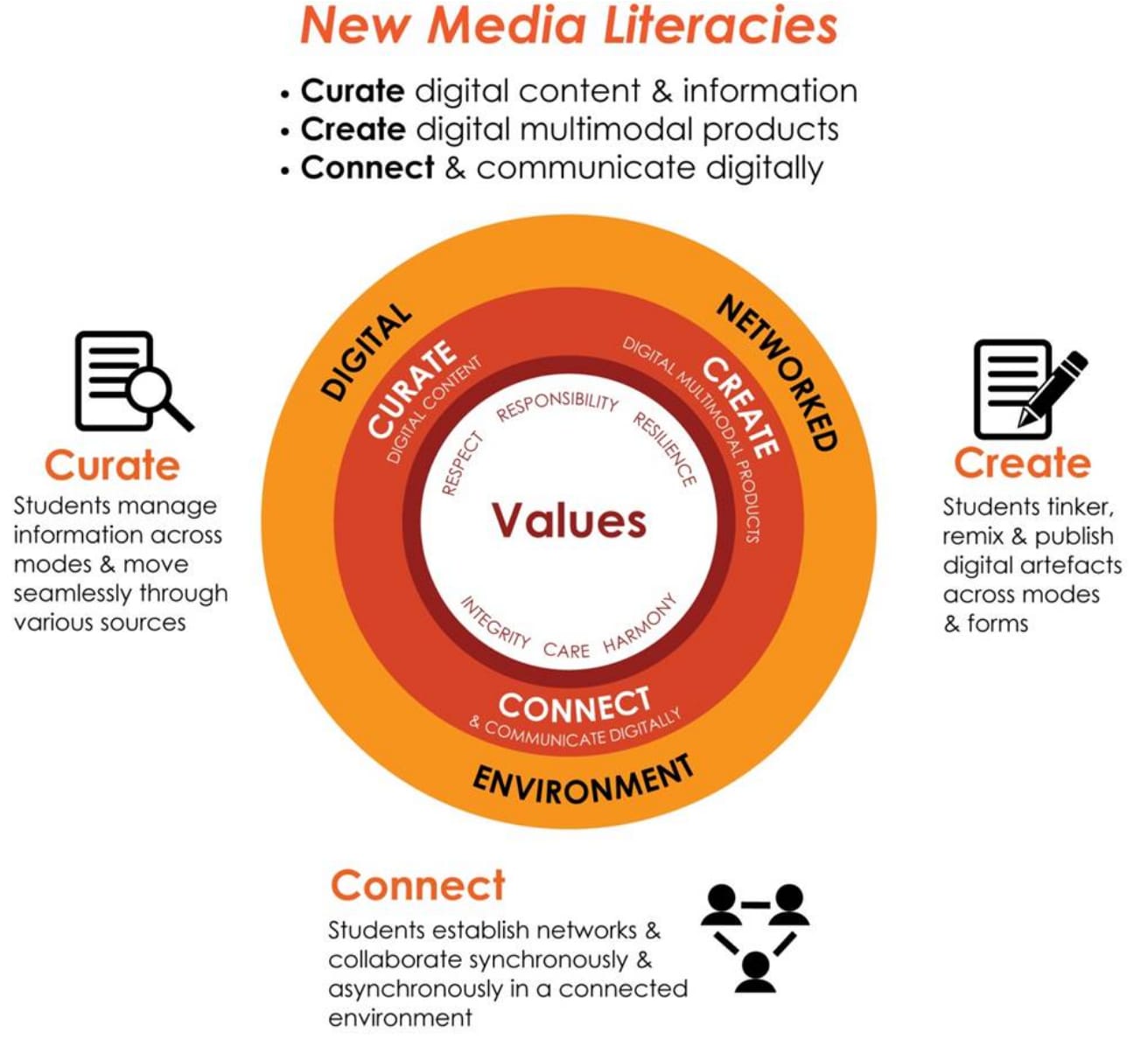
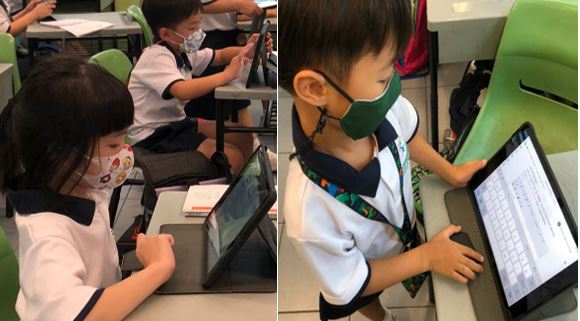
Primary 1 students during touch typing
Cyber Wellness
Cyber Wellness (CW) in Character and Citizenship Education (CCE) focuses
on the well-being of our students as they navigate cyberspace. Our curriculum
aims to equip students with the knowledge and skills to harness the power
of ICT for positive purposes, maintain a positive presence in cyberspace
and be safe and responsible users of ICT.
MOE Cyber Wellness Framework
The school adopts MOE’s Cyber Wellness Framework in educating our students
on Cyber Wellness. This framework focuses on three key processes: Sense,
Think and Act.
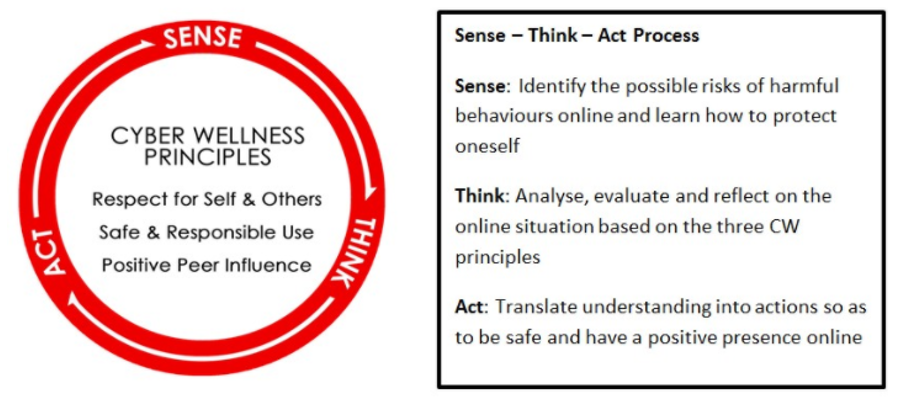
MOE uses the CW framework to develop the child’s instinct to protect and empower him to take responsibility for his own well-being in cyberspace. The three principles, ‘Respect for Self and Others’, ‘Safe and Responsible Use’ and ‘Positive Peer Influence’ when adhered to will anchor a child’s well-being in cyberspace as he/she will then be able to make careful and well-considered decisions.
Principles
a) Respect for Self and Others
Students need to:
-
uphold their own dignity when online (e.g., share appropriate content and participate in only legal online activities)
-
respect other people online (e.g., put themselves in others’ shoes, accept diverse views and opinions, give credit when using other people’s work and seek permission where necessary, avoid sharing hurtful materials)
b) Safe and Responsible Use
Students need to:
-
have an understanding of the risks of harmful and illegal online behaviour, and take steps to protect themselves (e.g., keep their personal information private, verify the reliability of information using various sources, take steps to avoid dangers they may encounter online)
-
make wise and healthy choices (e.g., maintain a healthy balance of their online and offline activities)
c) Positive Peer Influence
Students need to:
-
be a positive role model online (e.g., share healthy and positive content, harness the affordances of technology to do good for society)
-
advocate positive online behaviour (e.g., stand up for their peers online, report cases of cyber bullying to a trusted adult/authority, post encouraging remarks on social media)
Guided by MOE’s Cyber Wellness Framework, our school values are aligned to cyber wellness principles and taught to the students
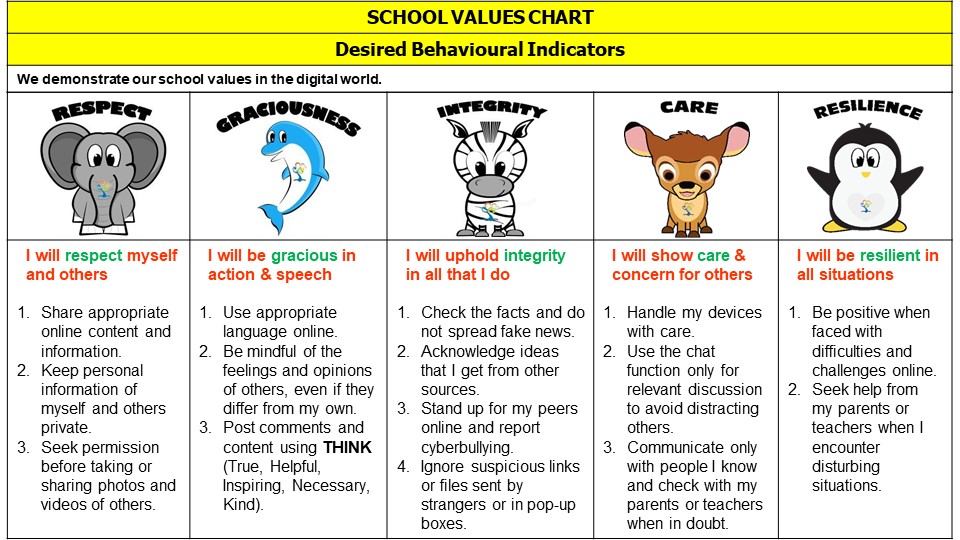
CPS School Values that help students navigate the digital world
Assembly Talks
Our students attend assembly talks and complete classroom lessons and
activities during assembly periods which teaches them how to stay safe
in cyber world. Topics covered include fake news, copyright issues, cyber-gaming,
Internet addiction, cyber-bullying and cyber-relationships.
Cyber Wellness (CW) Ambassador Training
To empower our students to lead in Cyber Wellness (CW) efforts, our Primary
4 to Primary 6 students who are selected as the CW Student Ambassador of
their class attend a training session where teachers equip them with information
on CW and share tips on how to advocate positive online behaviours. The
CW Ambassador will advocate CW efforts planned for the school as well as
participate in external CW events.
Cyber Wellness Online Activities by CW Ambassadors
The following online activities were created by our students. Please click
on the pictures for more details of the projects.
Cyber Wellness Posters

CW posters created by our CW ambassadors
Cyber Wellness Games
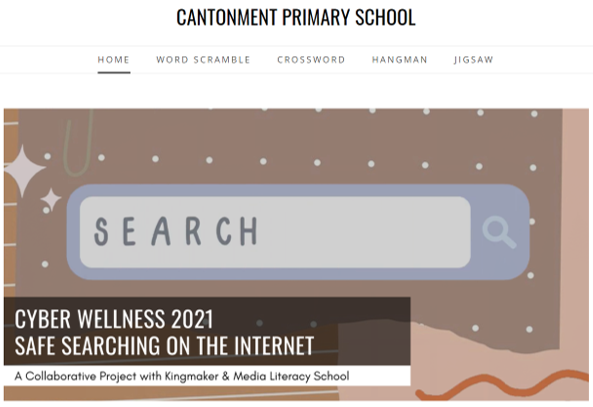
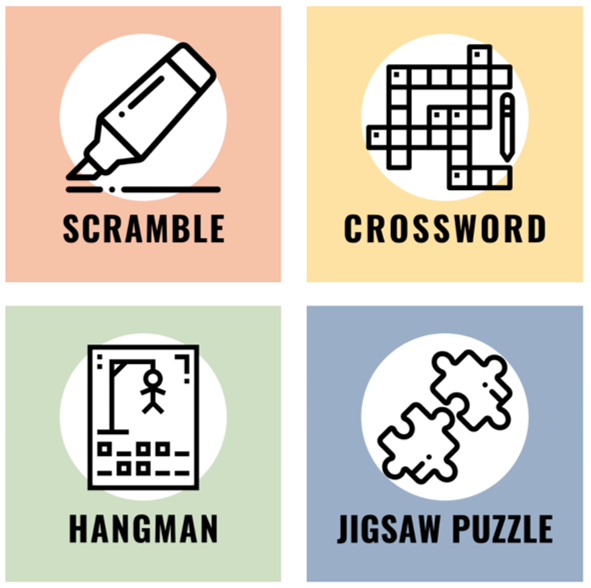
CW Games created by our CW ambassadors
Code For Fun (CFF)
The Code for Fun (CFF) Enrichment Programme is offered to all MOE primary
and secondary schools. CFF includes learning of related concepts using
visual-based programming language, combining it with robotic kits and/or
microcontrollers.
The curriculum also includes the basics of emerging technologies such as artificial intelligence (A.I). CFF aims to create a coding experience for our students and teach them core computational and coding concepts through simple visual programming-based lessons.

Primary 5 students during CFF lesson
Useful Links For Parents
MOE Cyber Wellness Parent Kit
The parent kit has useful tips, strategies and resources on various cyber
issues.
Cyber Wellness 2020 Online Activities
The following online activities and posters were created by
our CPS students. We hope you have fun and learn something useful.

